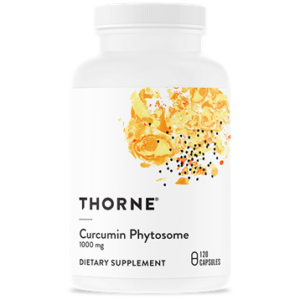Understanding Arthritis: Types, Symptoms, Solutions
Arthritis refers to over 100 diseases causing joint inflammation, leading to pain, swelling, and stiffness. Prolonged or recurring inflammation can damage tissues. The joints, where bones meet, have cartilage for cushioning and fluid to reduce friction. Arthritis damages your joints, causing discomfort and pain. It can be minor or severe, affecting people of all ages. Arthritis can affect any joint but is most common in:
- Hands and wrists
- Knees
- Hips
- Feet and ankles
- Shoulders
- Lower back (lumbar spine)
In the US, arthritis is the most common cause of disability. When severe, it can lead to deformity and complete loss of mobility. Between 2019 and 2021, 21.2% of U.S. adults, or 53.2 million people, reported arthritis diagnoses. Also, about half (52.2% to 62.4%) of adults 65 and older with certain health conditions, including dementia, COPD, stroke, heart disease, diabetes, or cancer, reported arthritis diagnoses.
Types of Arthritis and Their Symptoms
Common types of arthritis and their symptoms include the following:
Osteoarthritis (O.A.)
Conditions such as diabetes and hemochromatosis (excess iron) can contribute to the development of osteoarthritis. This is a common type of arthritis caused by the wearing down of protective cartilage in joints. It mainly affects the hands, knees, hips, and spine. Damage to joints can’t be reversed, but symptoms like pain and stiffness can be managed with exercise, maintaining a healthy weight, and specific treatments.
Depression is common among OA patients, with a 20% prevalence. A 2020 study involving 19,110 participants from Australia and the United States found that OA patients had a 41% higher likelihood of depressive symptoms compared to those without OA.
Symptoms
The most common symptoms of osteoarthritis include:
- Pain in a joint, especially during movement.
- Swelling near a joint.
- Decreased range of motion, limiting joint movement.
- A sense of joint instability or weakness.
- Noticeable changes in joint appearance, like deformities.
Rheumatoid Arthritis (R.A.)
Rheumatoid arthritis, an autoimmune disorder, causes chronic inflammation affecting joints and other body systems, including skin, eyes, lungs, heart, and blood vessels. Unlike osteoarthritis, it damages joint linings, leading to swelling, bone erosion, and deformity.
Symptoms
Symptoms of rheumatoid arthritis include:
- Pain, swelling, stiffness, and tenderness in more than one joint.
- Stiffness, particularly in the morning or after extended sitting.
- Pain and stiffness impact the same joints on both sides of the body.
- Fatigue (extreme tiredness).
Gout
Gout is arthritis marked by sudden, intense pain, swelling, redness, and joint tenderness, commonly on the big toe. Attacks can happen suddenly and even wake you up at night with severe discomfort. (See Uric-X by Designs for Health)
Symptoms
Gout attacks are extremely painful and can occur suddenly, often overnight. Symptoms in affected joints during an attack may include:
- Intense pain.
- Discoloration or redness.
- Tenderness, even to light touch (such as a bedsheet covering the affected joint).
- The warmth or feeling like the joint is “on fire.”
Psoriatic Arthritis (PsA)
Psoriatic arthritis (PsA) is an inflammatory arthritis linked with psoriasis. It affects roughly 1.5 million Americans, around 30% of psoriasis patients. PsA is an autoimmune disorder in which the immune system mistakenly attacks healthy tissue, primarily impacting the skin and joints.
Symptoms
Psoriatic arthritis symptoms may include:
- Swollen fingers and toes
- Foot pain
- Lower back pain
- Fatigue
- Swelling and pain around tendons
- Morning stiffness and tiredness
- Reduced range of motion
- Nail changes
- Eye redness and pain
- Scaly skin, especially on knees, elbows, and scalp
Fibromyalgia
Fibromyalgia is a disorder characterized by widespread musculoskeletal pain, fatigue, and issues with sleep, memory, and mood. It is believed to amplify painful sensations by affecting the processing of signals in the brain and spinal cord.
Symptoms:
Fibromyalgia symptoms may include:
- Muscle pain or tenderness
- Fatigue
- Temporomandibular joint disorders: Pain in the face and jaw
- Headaches and migraines
- Digestive problems, including diarrhea and constipation
- Bladder control issues
Fibromyalgia can also cause mental and emotional symptoms:
- Memory issues (sometimes known as “fibro fog” or “brain fog”)
- Anxiety
- Depression
- Insomnia and other sleep disorders
Importance of Diet and Supplements in Arthritis Management
A balanced diet is crucial for overall health. Alongside a healthy diet, food supplements can provide additional nutrients that may benefit individuals with arthritis, including both inflammatory and osteoarthritis types.
Anti-inflammatory Diet
The Mediterranean diet offers several benefits for joint health, including lower blood pressure and reduced inflammation. Here’s a breakdown of key foods and their advantages:
- Fish: Rich in omega-3 fatty acids, fish like salmon and tuna help fight inflammation and reduce joint pain.
- Nuts & Seeds: Packed with monounsaturated fats, nuts such as walnuts and almonds have anti-inflammatory properties and promote weight loss.
- Fruits & Vegetables: Loaded with antioxidants, colorful fruits and veggies like berries, spinach, and kale neutralize free radicals and reduce inflammation.
- Olive Oil: Contains oleocanthal, which acts similarly to NSAIDs to reduce inflammation and pain sensitivity.
- Beans: Beans are high in fiber and phytonutrients, and they help lower CRP levels, an indicator of inflammation.
- Whole Grains: Fiber-rich whole grains like brown rice and quinoa can lower CRP levels and help maintain a healthy weight.
Best Supplements
Several nutritional supplements show promise in relieving arthritis symptoms like pain and stiffness. Here’s a look at the mechanisms of some popular supplements for arthritis:
- Fish Oil/Omega-3s: Blocks inflammation, converting into anti-inflammatory chemicals that reduce joint stiffness and tenderness.
- Vitamin D: Essential for arthritis treatment, as low levels can lead to chronic pain.
- Turmeric: Contains curcumin, which blocks inflammatory proteins, providing pain relief and improved joint movement.
- Glucosamine: Helps slow cartilage loss and eases stiffness, swelling, and joint pain. It is often taken with chondroitin.
- Chondroitin: Boosts collagen in joints, helps absorb shock, and retains water in cartilage for smooth operation.
- Borage Oil: Rich in gamma-linolenic acid, it fights inflammation and reduces rheumatoid arthritis symptoms.
- SAMe (S-adenosylmethionine): Works like NSAIDs to reduce inflammation and pain and also aids in cartilage repair.
- MSM (Methylsulfonylmethane): Supports connective tissue formation and reduces knee osteoarthritis symptoms like pain and swelling.
- Boswellia: Eases joint pain, improves movement, and slows cartilage loss.
- Cat’s Claw: Soothes inflammation benefits knee pain in osteoarthritis and rheumatoid arthritis symptoms.
- Avocado Soybean Unsaponifiables (ASU): It Protects synovial cells, promotes healthy connective tissue growth, reducing the need for pain medication in osteoarthritis.
Foods to Avoid for Arthritis Pain Relief
Several foods contribute to inflammation and aggravate your arthritis symptoms. These include the following:
- Dairy products: For many Americans, dairy is a staple at every meal, but its role in an anti-inflammatory diet is complex. A 2015 study linked dairy to increased inflammation. Casein in dairy might contribute to inflammation, so consider cutting back.
- Trans fats: Found in fast foods and processed snacks, these fats can worsen inflammation.
- Refined carbs: Avoid white bread and sugary cereals; use whole grains like brown rice.
- Sugary foods: Reduce daily soda, candy, and cakes to reduce inflammation.
- Foods cooked at high temps: Grilled and pasteurized foods can create toxins that trigger inflammation.
- Food additives: Avoid additives like MSG and aspartame found in processed foods, which can increase inflammation.
- Alcoholic beverages: Limiting alcohol intake can help reduce inflammation, especially for gout sufferers.
- Foods with gluten: Gluten in wheat, barley, and rye can trigger inflammation, so try cutting it out if you suspect sensitivity.
Amos Miller and Raw Dairy
Raw milk retains beneficial bacteria and enzymes, making it easier to digest than pasteurized milk. Key benefits include improved digestion, gut health support, active enzymes for nutrient absorption, bioavailable vitamins and minerals, and its natural state without processing.
For almost 30 years, Amos Miller has run Miller’s Organic Farm, known for its traditional farming methods in Bird-in-Hand, Pennsylvania. They have about 4,000 members in a private buyers’ club who love their organic eggs, raw milk, grass-fed beef, cheese, and fresh produce. However, the farm has had trouble with the USDA because it only follows some federal farming rules. Miller’s resistance to compliance led to a federal court ordering a halt to meat sales and allowing armed U.S. marshals to inspect the farm, with regular federal inspections now in place.
Natural Therapies for Arthritis Pain
Arthritis can cause daily joint pain and stiffness. Natural therapies offer additional ways to alleviate discomfort. Here are several natural methods to ease arthritis pain.
- Weight Management: Maintaining a healthy weight reduces joint pressure, which is particularly effective for osteoarthritis.
- Exercise: Regular physical activity aids in weight management, flexibility, and muscle strength, with recommended activities like walking, cycling, and swimming.
- Hot and Cold Therapy: Alternating between heat and cold treatments, such as warm showers or ice packs, can alleviate pain and inflammation.
- Acupuncture: Traditional Chinese medicine uses fine needles to stimulate energy pathways. It may reduce inflammation and chronic pain.
- Meditation: Stress reduction techniques like mindfulness meditation and yoga can help manage pain and improve mental health, which is especially important for those with rheumatoid arthritis.
- Massage: Massage therapy can reduce joint pain and stiffness, though its effectiveness is still under investigation.
- Tai Chi and Yoga: Low-impact exercises that improve flexibility, strength, and balance.
- Biofeedback: Helps control automatic responses like heart rate and blood pressure, aiding in stress management.
- Visualization: Mental exercise to reduce stress and pain perception.
- Aromatherapy and Essential Oils: May boost mood but have a limited impact on pain and inflammation.
Bottom Line
Arthritis encompasses a wide range of conditions characterized by joint inflammation, which causes pain, stiffness, and reduced mobility. Numerous types, including osteoarthritis, rheumatoid arthritis, gout, psoriatic arthritis, and fibromyalgia, affect millions worldwide, substantially impacting the quality of life. Natural therapies and lifestyle changes play a vital role. Dietary adjustments, supplements, exercise, and holistic practices such as acupuncture and meditation can offer relief and improve overall well-being.
-
 Quick View Add to cart
Quick View Add to cartMSM 1000 mg 240 caps
$57.68 -
 Quick View Add to cart
Quick View Add to cartLymphapar 1 oz liquid
$17.00 -
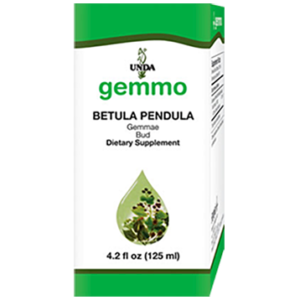 Quick View
Add to cart
Quick View
Add to cart
-
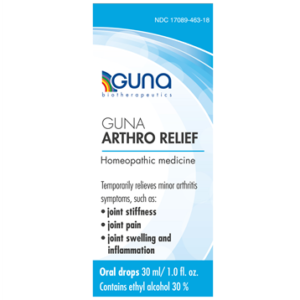 Quick View Add to cart
Quick View Add to cartGUNA ARTHRO RELIEF 1 fl oz
$28.50 -
 Quick View
Add to cart
Quick View
Add to cart
-
 Quick View Add to cart
Quick View Add to cartHomeo Travel Kit
$91.98 -
 Quick View Add to cart
Quick View Add to cartArthritis Homeopathy Kit
$64.50 -
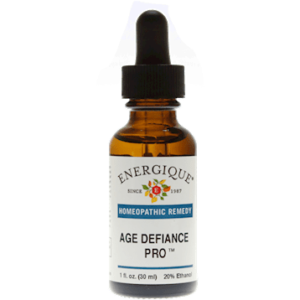 Quick View Add to cart
Quick View Add to cartEnergique
$39.90 -
 Quick View Select options This product has multiple variants. The options may be chosen on the product page
Quick View Select options This product has multiple variants. The options may be chosen on the product pageSilicea
$8.56 – $11.40 -
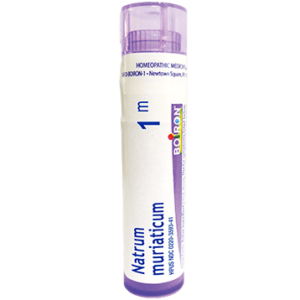 Quick View Select options This product has multiple variants. The options may be chosen on the product page
Quick View Select options This product has multiple variants. The options may be chosen on the product pageNatrum muriaticum
$8.56 – $11.40 -
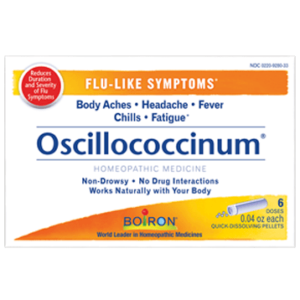 Quick View Add to cart
Quick View Add to cartOscillococcinum
$16.29 -
 Quick View Select options This product has multiple variants. The options may be chosen on the product page
Quick View Select options This product has multiple variants. The options may be chosen on the product pageIgnatia Amara
$8.56 – $11.40 -
 Quick View Select options This product has multiple variants. The options may be chosen on the product page
Quick View Select options This product has multiple variants. The options may be chosen on the product pageChamomilla
$8.56 – $11.40 -
Sale!
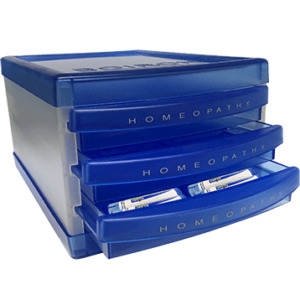 Quick View Add to cart
Quick View Add to cartHomeo Family Kit
Original price was: $255.50.$199.00Current price is: $199.00. -
 Quick View Add to cart
Quick View Add to cartCan Albex 30X
$26.40 -
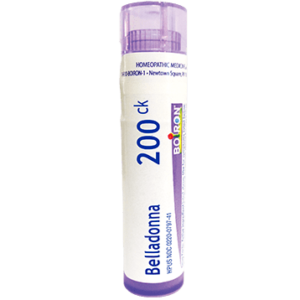 Quick View Select options This product has multiple variants. The options may be chosen on the product page
Quick View Select options This product has multiple variants. The options may be chosen on the product pageBelladonna
$8.56 – $11.40 -
 Quick View
Add to cart
Quick View
Add to cart
